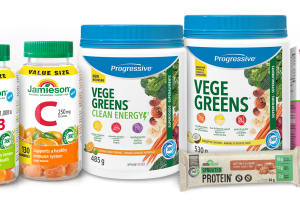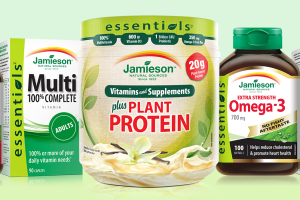
How to help your customer build a better gut
How do probiotics support the body?
Research has shown us time and time again that probiotics and beneficial bacteria residing in the gut do more than improve the health and function of the gastrointestinal tract.2 These good bacteria also function opposite to harmful microbes by defending against pathogens, as well as by providing essential nutrients, and aiding the breakdown of indigestible substances.3
As the microbiome develops through infancy, certain strains of bacteria can help with infant and childhood related conditions like colic (BB-12)4, gastrointestinal issues (B. coagulans IS-2)5, upper respiratory tract infections and skin issues like eczema (B. lactis, L. acidophilus).6,7 By 3-5 years old, the microbial diversity of the gut is similar to that of an adult microbiota,8 although hormonal shifts that occur during adolescence influence the microbiota in adulthood.9 Gut microbiota can be temporarily disrupted by many external stressors, but interestingly, a fundamental change in living environments, such as immigration or a continuous change in dietary habits, can lead to permanent changes in the gut microbiota.10
What should your customer consider when choosing a probiotic?
- Format – While capsules are traditional, many of your customers may find powders, chewables, and gummies easier to take, effective, and delicious.
- Strain type – The strains of bacteria matter, as does the number of different strains within a formulation. Different strains of bacteria are needed in different parts of the gastrointestinal tract (and body). They can also provide specific benefits for certain age groups or even genders depending on the bacterial species.
- Potency/CFU – The potency in a formula is the colony forming units (CFU), or total number of bacterial cells, guaranteed to be present in the product until expiry. It is important to take note of what the potency is to meet your customer’s specific needs.
- Stability and acid/bile tolerance – Probiotics need to withstand the harsh and acidic environment of the stomach to reach the intestines, so ensure the formula is designed to withstand stomach acid and bile, and that it will breakdown at a specific time after ingestion.
- Adherence/transit time – Probiotics should be tested to ensure they can remain in the gastrointestinal tract for a short period and support colonization of beneficial bacteria.
- Quality and Testing – Not all probiotics are created equal! Quality assurance and testing ensures that each probiotic species listed on the package are actually in the product. Jamieson provides quality testing throughout the entire process of making a probiotic supplement and tests all the way to the strain level (not just species) to ensure that each probiotic formula is both safe and effective.
Jamieson offers a variety of probiotics containing scientifically tested bacterial strains to support the needs of different age groups, genders, and needs.*
*If you or your customer have an immune related condition, or complex, chronic health condition, always speak with a healthcare practitioner before using a probiotic.
Watch to learn more!

Digestive concerns have increased across the globe and customers are coming to you looking for natural solutions and advice to improve their gut health. Join us to take a deep dive into the latest microbiome research and how Jamieson™ formulations can bridge the gap to helping your customers feel like themselves again.
Watch to learn:
- Little known facts about digestion and immunity in areas of everyday life
- How probiotics work to influence more than digestion
- How to help your customer choose the right probiotic for their needs
- Latest research on probiotics and the microbiome
- Need State Research among P6M Category Purchaser / Non Rejecter, Jamieson Proprietary Research 2021
- Hun, L. (2009). Original Research: Bacillus coagulans Significantly Improved Abdominal Pain and Bloating in Patients with IBS, Postgraduate Medicine, 121(2): 119-124.
- Round, J. L., Mazmanian, S. K. (2009) The gut microbiome shapes intestinal immune response during health and disease. Nature reviews Immunology. 9(5): 313-323.
- K. Chen, G. Zhang, H. Xie, L. You, H. Li, Y. Zhang, C. Du, S. Xu, C. Melsaether, and S. Yuan Beneficial Microbes 2021 12:6, 531-540
- Sudha, M. R., et al. (2018) Efficacy of Bacillus coagulans Unique IS2 in treatment of irritable bowel syndrome in children: a double blind, randomised placebo controlled study Beneficial Microbes: 9 (4)- Pages: 563 – 5729542-9
- Gerasimov, S.V., et al. (2016). Role of short-term use of L. acidophilus DDS-1 and B. lactis UABLA-12 in acute respiratory infections in children: a randomized controlled trial. Eur J Clin Nutr; 70: 463-469.
- Gerasimov, S.V., Vasjuta, V.V., Myhovych, O.O., and Bondarchuk, L.I. (2010). Probiotic supplement reduces atopic dermatits in preschool children. Am J Clin Dermatol; 11:351-361.
- Rodríguez, J. M., et al. (2015). The composition of the gut microbiota throughout life, with an emphasis on early life. Microbial ecology in health and disease, 26, 26050.
- Valeri, F., Endres, K. (2021). How biological sex of the host shapes its gut microbiota. Frontiers in Neuroendocrinology Volume 61. Article 100912.
- Kim, Y. S., Unno, T., Kim, B. Y., & Park, M. S. (2020). Sex Differences in Gut Microbiota. The world journal of men’s health, 38(1), 48–60.
- Martoni, C.J., Srivastava, S., and Leyer, G.J. 2020. Lactobacillus acidophilus DDS-1 and Bifidobacterium lactis UABla-12 Improve Abdominal Pain Severity and Symptomology in Irritable Bowel Syndrome: Randomized Controlled Trial. Nutrients; 12: 363.
- Kim, S., & Jazwinski, S. M. (2018). The Gut Microbiota and Healthy Aging: A Mini-Review. Gerontology, 64(6), 513–520. https://doi.org/10.1159/000490615
- Ahrén IL, Hillman M, Nordström EA, Larsson N, Niskanen TM. Fewer Community-Acquired Colds with Daily Consumption of Lactiplantibacillus plantarum HEAL9 and Lacticaseibacillus paracasei 8700:2. A Randomized, Placebo-Controlled Clinical Trial. J Nutr. 2021 Jan 4;151(1):214-222. doi: 10.1093/jn/nxaa353. PMID: 33296464; PMCID: PMC7779238.
Chelsea De Colle is a BC based Certified Nutritional Practitioner specializing in the areas of stress management and sleep. She has worked with individuals in nutrition & lifestyle coaching, provided education for businesses through corporate wellness as well as providing holistic cheffing services for personalized in-home nutrition support. Chelsea’s passion is to educate and empower individuals to thrive by understanding their unique health needs and find a balance through both lifestyle and nutrition.



